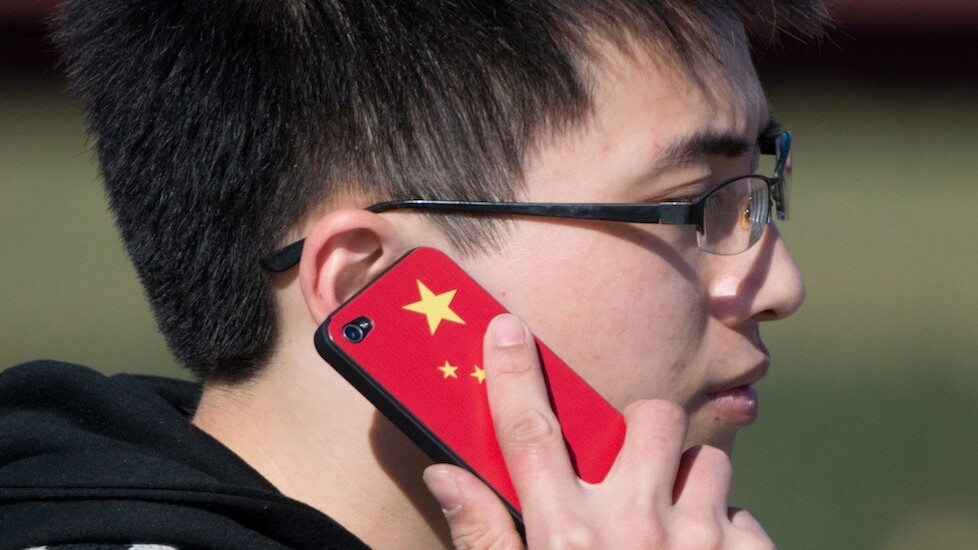
China is the world’s largest smartphone market, and with that comes a lot of interest in how mobile users behave. As one of the primary ways through which consumers access content, apps in particular are a key area of focus.
China’s app ecosystem is somewhat of a maze for people who aren’t familiar with the way it works. In terms of iOS, the presence of Apple’s App Store in the country makes it pretty straightforward to track, but for Android, it is way more complicated. In the vacuum left behind by Google Play after it exited China in 2010, hundreds of third-party Android app stores sprouted up. Now, however, it has been narrowed down to about six major stores: 360 Market, Baidu-owned 91 Wireless, UCWeb, Tencent’s MyApp, Xiaomi’s Mi Market, and Wandoujia.
WeChat driving app behavior
In the midst of all this, popular messaging service WeChat has very much driven the behavior of Chinese mobile users across both iOS and Android. That’s according to the personal observation of Junde Yu, Asia-Pacific Vice President at app-ranking and market intelligence firm App Annie.
App Annie currently doesn’t consolidate data from third-party Android app stores in China, though there are plans to incorporate them by early next year. In terms of iOS revenue, China has steadily climbed to rank third in the world. Yu told TNW in a recent interview that this trend of spending on apps can be attributed to the influence of WeChat. This is not only because of WeChat’s large userbase — it recently crossed 438 million monthly active users — but also because it introduced users to casual games.
Yu noted that mobile gaming on WeChat basically kickstarted the habit of paying for apps among mobile users in China.
Firstly, there’s a huge userbase (on WeChat) and people log in every day — because it’s not just a messenger, it’s a microblog and you can also play games, see what your friends are doing and make new friends as well. From this huge userbase, the first thing (WeChat) branched into was casual games…
They first pushed casual games and people started playing it even though they are not gamers — and we’re talking about masses here. Because WeChat games are so easy to play and so easy to pick up, after a while they get hooked on it and start to pay.
All these people have never paid for mobile content before, but once they make the first payment, that’s it. After the first payment, they start to pay a lot more. WeChat brings them through the floodgate, opens the floodgate for them: make the first payment and after that you’re likely to pay more not just for WeChat and Tencent services and games, but everything in general.
Bo Wang, the vice president of business development at Tencent, the company that owns WeChat, told TNW recently that he didn’t think the gaming market would be this huge, and believes it could become “much bigger” in terms of users and revenue. This shows the extent of which gaming has taken off in China, so much so that Tencent is now seeking out foreign game publishers to build up more engaging content on its platform, and in turn monetize more effectively.
More than an app store
With WeChat funneling users into the wider app ecosystem, the app store becomes a very important place. The iOS app store captures all Apple users, but in China, the Android ecosystem spiraled into a fragmented state of affairs after Google Play pulled out of the country. This led to the mushrooming of several third-party Android app stores.

One of these, Wandoujia, was initially skewed towards being more of an iTunes for Android or sort of a desktop-based phone manager for Android devices. It introduced an app search function after Google Play ceased to exist in China, and that feature has now come to determine Wandoujia, which is often described as an “Android app store.”
However, company spokesperson Tyler Cotton told TNW in a recent interview that Wandoujia is much more than that. In fact, the way Wandoujia works is very different from Google Play. Instead of hosting all the apps, it crawls listings — some come from the developer’s website directly, and others even from competing distribution services — to index about 1.6 million games and apps. It only hosts 10,000 or so, and even these are mostly the result of partnerships.
Cotton instead says that Wandoujia is known more as a “one-stop entertainment center for mobile users” doing not just apps and games, but also videos, e-books and wallpapers among other offerings.
I’m hesitant to go along with the idea that we’re just an app store, because there are a lot of different ways that we partner (companies) that sort of blur the boundaries of competition. The way users would use us is not necessarily limited to the idea of an app store. You can think of us more as a mobile search and like a portal for mobile users for all kinds of content…
We’re focusing mobile search with a mobile-first mindset. A traditional search engine is very much about referencing data, so you’re going to do a search and you’re going to get search results, and usually if you’re on your computer, you click through a couple of times and read through them to see what you want. On your phone, you don’t really want to do that. When it comes to entertainment, you want what some people call actionable search. You want content, and you want to launch it.
The battle to conquer payments
After users download an app, the next stage to increase revenue is to make it easy for them to pay for additional content.
App Annie’s Yu said that Chinese internet giants are now fighting a “battle to own people on mobile payment.” Once a user’s bank account is linked up to the mobile app, they will keep on spending — particularly as China works with a top-up system, which leads to people having to continue purchasing apps to finish spending the amount they have added in. For example, if they top up $5 and only buy an app for $0.99, this would leave them money to buy more apps.
In countries like Singapore, Hong Kong, US and most other countries in the world, except for developing countries — people have Visa, MasterCard, Amex and so on, so it’s easy to pay on Google Play or (Apple) App Store. But in China most people don’t, so they have to pay by binding their bank cards to iTunes. And binding their bank cards means they cannot buy directly, they actually only top up.
Yu noted that although the purchases may kick off with smaller ones like apps, the Chinese will keep spending on “a whole array of services.”
For example, on WeChat now, besides games and apps, you can make a peer-to-peer transaction with your friend, call for a taxi and pay for it immediately, buy plane tickets, book hotels, purchase movie tickets and top up phone bills among other things.
Yu told TNW that he thinks Tencent-owned WeChat has won the social battle in China, but in terms of payment, “both Alibaba and Tencent are winners.” This is because users can tap on WeChat’s payment feature for some services, but as they have likely shopped on Alibaba’s Taobao marketplace over the years, they would still use Alipay.
Foreign publishers targeting China
Overseas app publishers seeking to crack the China market may find it daunting amidst the complicated ecosystem they have to face.
App Annie’s Yu said there are a few kinds that can succeed on their own — in particular indie games (“but that’s based on luck and you cannot bet on that”) and also games with big branding that domestic firms cannot replicate and have to buy the license. Otherwise, partnering with a local firm is the wisest way to go. He said:
Distribution is not simple. If you don’t have a powerful brand, and if you don’t understand the local landscape, you need local help here. If you do not have a top-tier brand, then you definitely need distribution. You need payment gateways, localization — it’s not just plain translation, you need to know the trending phrases and all that, it’s a lot of cultural elements.
In terms of what kind of apps make the cut in China, Wandoujia’s Cotton says that games are (by downloads) “definitely” the most popular, though he did note that the company sees relatively fast life-cycles. He added that there has been a recent rise in what’s known as “mid-core” games with simply gameplay mechanics but more story elements, “so it’s sort of a cross between easy-to-play so it’s very accessible to everyone, but more story elements so it’s more nerdy and brings you in.”
Following that, the most popular apps in China according to downloads are still the essentials — maps, messaging and lifestyle apps such as instant messaging platform mobile QQ, chat app Line and Baidu Maps.
Finding your way in China
Such a huge smartphone market is a double-edged sword — it means a large pool of potential users for app developers, but it’s also harder to figure out what works and what doesn’t. This is why Yu is confident that App Annie is well-placed to help foreign firms along in China. He said:
Mobile is a goldmine. Everybody wants to go find gold, but not many people find gold — maybe two or three out of 100 people. Everyone who goes out buys water from us, or everyone who’s on the way buys water from us, because we provide data that helps you make decisions.
We provide data on every app in the world — every app, every publisher and every category in every country in the world, and market-level data at that. So if you want to make wise budget decisions or look at competitors or whatever, you look at our data.
Interestingly enough, he also revealed that Chinese companies are increasingly buying App Annie’s data as they seek to expand overseas and “need to understand what it’s like first.”
Given the unique situation and intense competition in the Chinese mobile ecosystem, it appears that as Chinese firms currently eye overseas expansion, this could very well be the right time for foreign app publishers to also come into China to take a look at how to navigate the challenges as well.
Headline image via Getty Images, images via Bryanlyt, Flickr, Getty Images
Get the TNW newsletter
Get the most important tech news in your inbox each week.









